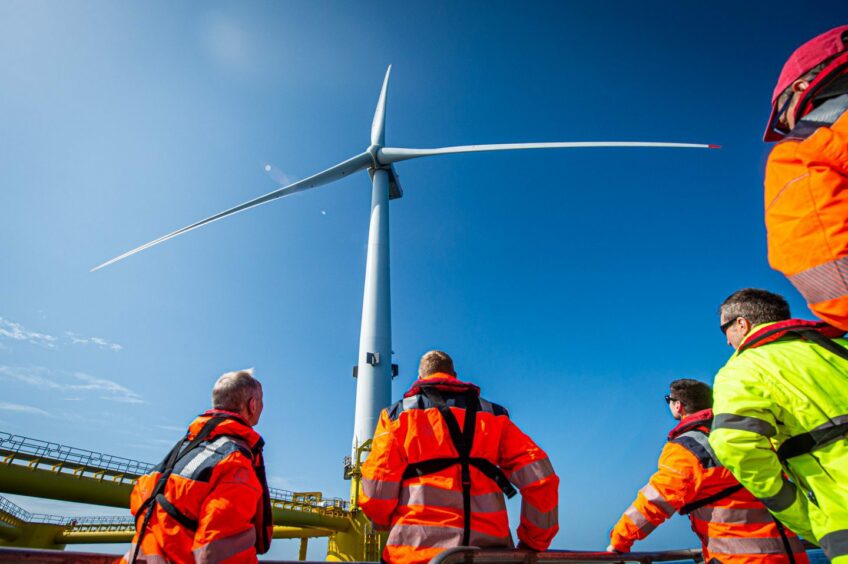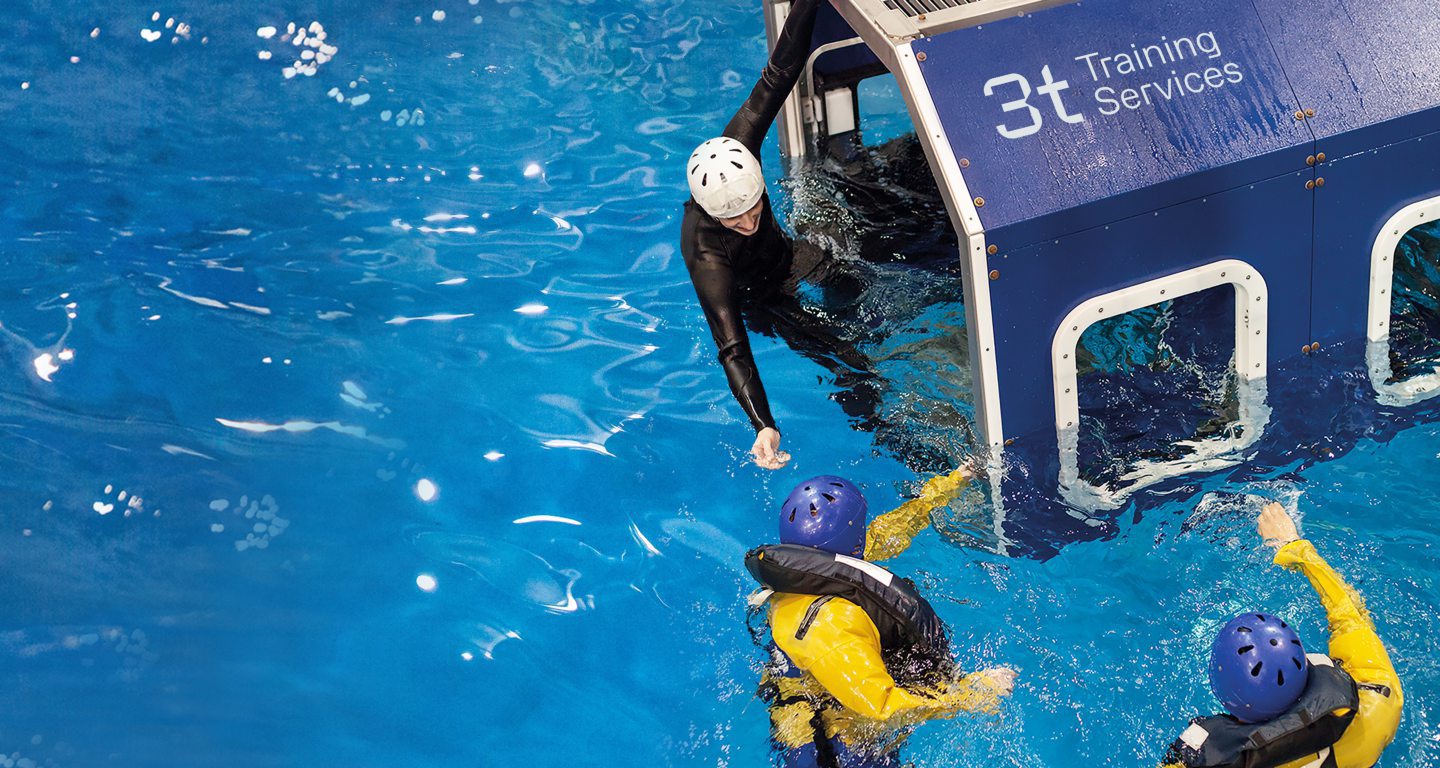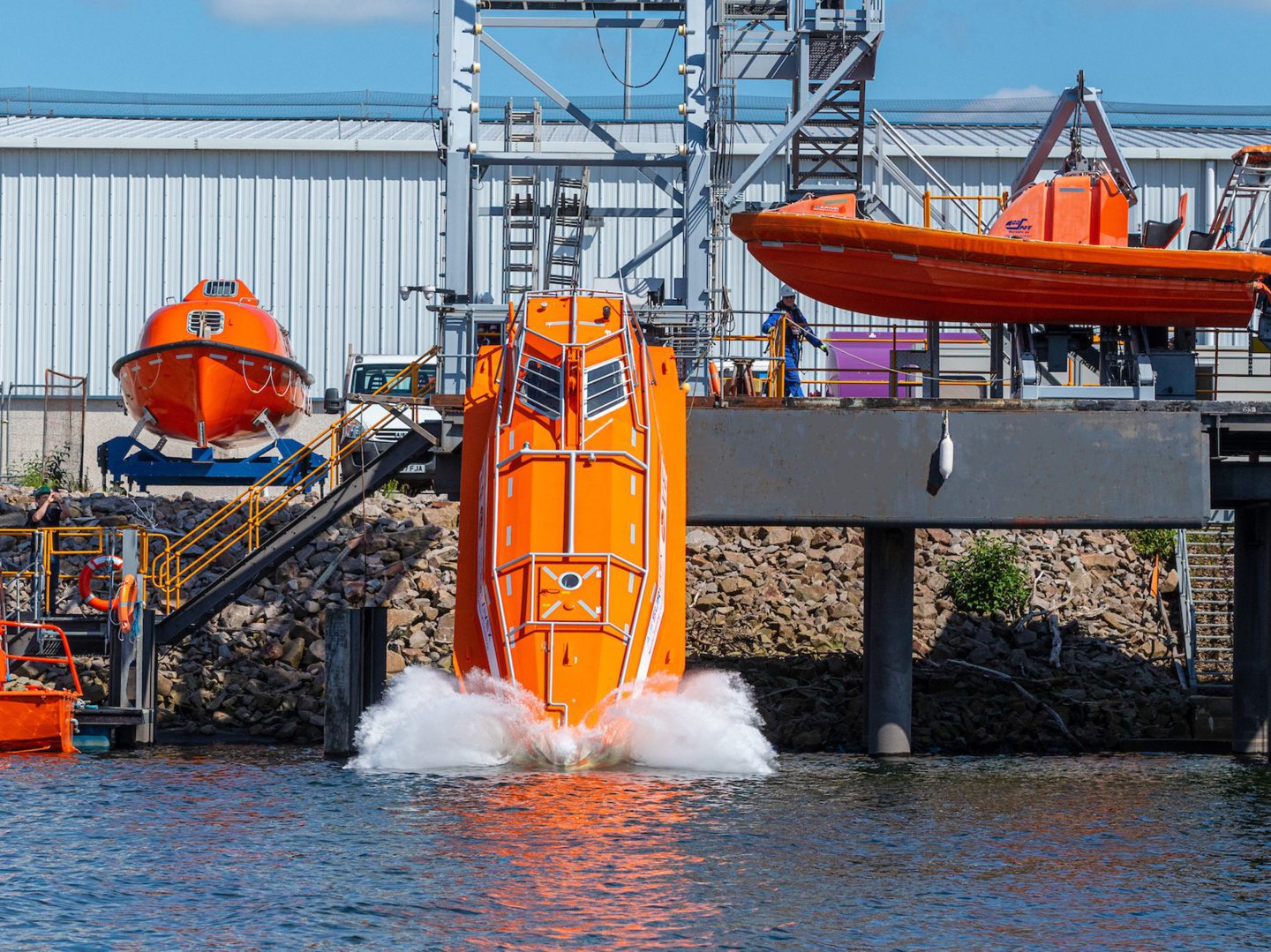
The head of training firm 3t is calling for a more strategic approach to skills policy to ensure there are enough skilled workers for the UK energy transition.
3t is the largest provider of oil and gas and energy training in the UK, with facilities spread across cities including Aberdeen, Newcastle and Manchester.
Speaking to Energy Voice, the firm’s chief executive officer Kevin Franklin said with the North Sea basin in decline, “there’s clearly a need for people to retrain and reskill”.
“It’s really important for the north-east of Scotland, but it’s also important for the UK more generally as well,” Franklin said.
“There’s an opportunity, and there’s an imperative really, to be quite strategic around these things and have a plan that we’re looking at holistically for what is right for the country and the wider economy, and the individuals who live here as well.”
Skills passport
Skills policy has emerged as a key part of the UK energy transition, with a Robert Gordon University (RGU) study showing more than 90% of workers in the North Sea oil and gas sector have medium to high skills transferability in low carbon sectors.
As part of efforts to improve skills transferability, the offshore sector agreed in 2021 to introduce an offshore skills passport in the North Sea Transition Deal.
After several delays, trade associations RenewableUK and Offshore Energies UK (OEUK) announced an agreement to trial cross-sector skills recognition in May.
Prior to the election, the Labour party also pledged to work with the Scottish Government to progress the skills passport in government and included its Skills England Bill as part of the King’s Speech last week.
But with skills policy a devolved matter, Franklin said all UK administrations need to be working together to formulate a national strategy.
“We’d like to see strategic backing for having appropriate skills for individuals so they can fulfil the needs of what we require in the wider economy, and that’s not just in our sector, that’s more generally as well,” he said.
“Securing a skilled workforce is essential for achieving the UK’s growth goals.”
Offshore safety and skills training
Franklin also said skills training is an essential part of improving safety standards in the offshore wind sector.
A recent University of Strathclyde study highlighted safety concerns in the global offshore wind sector, with incidents nearly doubling year-on-year in 2023 despite the overall injury rate remaining steady.
Franklin said the wind sector’s safety performance reflects the “growing pains” of an industry that is yet to mature, and he wants to see injury rates “declining or at least plateauing”.
“I see the [offshore wind] industry being on a journey,” he said.
“I think [improving safety is] really important to the energy strategy for the UK in particular, but it needs to align to a skills agenda as well.”
With many oil and gas workers set for an eventual transition into renewable energy roles, Franklin said safety training will need to form a key part of any transfer of skills.
Franklin said while there is some overlap in offshore survival skills across oil and gas and wind, in other areas workers will need additional training.
“If you unfortunately find yourself in the North Sea there’s some commonality there in terms of the safety standards that you would look to have enforced and there’s probably some synergy in that regard,” he said.
“If you find yourself up at the top of a wind turbine in an emergency, unfortunately [that is] probably not the same as being on a platform or a rig when there’s an emergency.”
Skills training innovation
As a result, Franklin said 3t is exploring variety of innovative training solutions including using virtual reality (VR) technology and interactive escape training.
“A lot of it’s around people learning and developing the muscle memory so that when they find themselves in a crisis situation, they can go to that muscle memory and they can then respond in a more appropriate way,” he said.
“Whereas if you’re trying to make it up on the hoof, there’s going to be challenges.”
Franklin said using VR technology and immersive training environments during training forces participants, particularly young people, to pay attention.
The situation can also be tailored to increase the difficulty and improve learning outcomes.
“And that’s part of the attractiveness of the technology element, you can mess it up, you can get it wrong, and then you can learn from it without creating a catastrophe,” Franklin said.
In addition to offshore wind, Franklin said 3t is investing in improving its training capabilities around emerging energy technologies.
This includes areas like carbon capture, electrification and hydrogen, with significant investment occurring close to the 3t facility in Teesside.
“They’re not anywhere near mature at this point in time, and we will need to work with standard setters and the vested interests who are working to develop those projects to make sure people are safe and they can work effectively,” he said.
With new technologies comes new safety hazards, and Franklin said the sector doesn’t want “another Piper Alpha” as the catalyst for improving safety standards.
Restoring the ‘artisan trade’
Overall, Franklin said a key part of improving skills outcomes in the UK will be making a “corrective adjustment” on the value placed on different industry skills.
“I think the artisan trade, shall we say, there is probably an opportunity to recalibrate that a little bit in the UK and make that appropriately more valued,” he said.
“We probably haven’t got the balance right, but it’s around apprenticeships as people leave school, making sure they’ve got the right education, but also making it an attractive industry.
“And that’s not just about money. Of course, that will be important for people and people should be appropriately compensated, but also I think people want to understand they’re working in an industry of the future as well, and a lot of these [jobs], particularly when you’re in the energy transition side, it’s a pretty exciting space.”
Recommended for you

 © 3t Training Services
© 3t Training Services © Supplied by 3t Training Services
© Supplied by 3t Training Services © Supplied by 3t Training Services
© Supplied by 3t Training Services